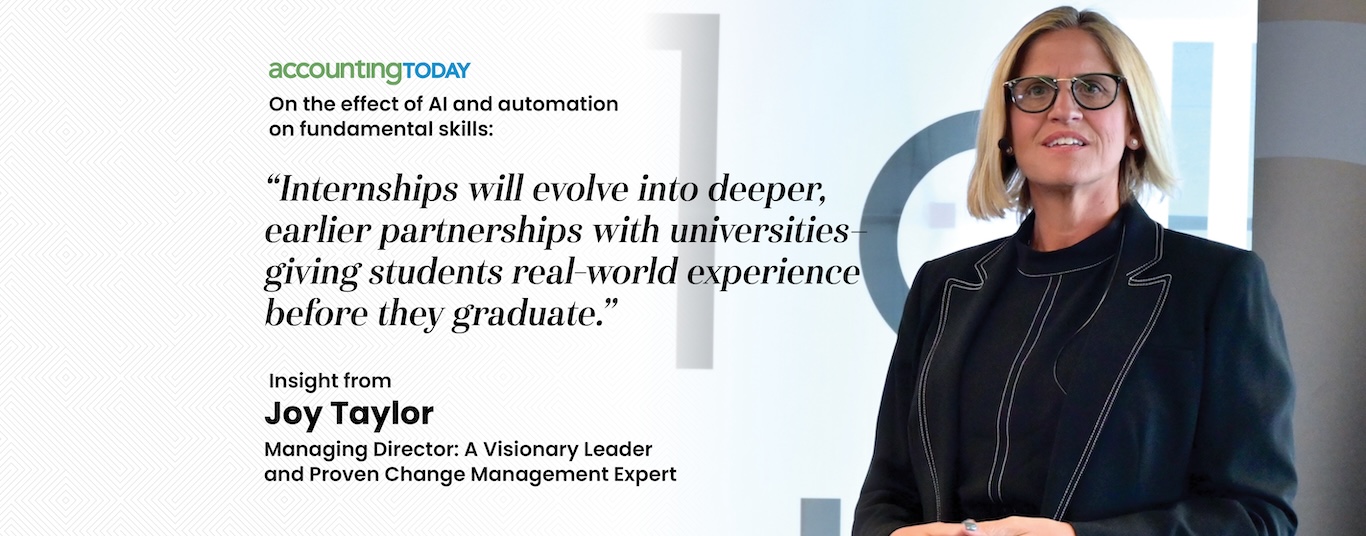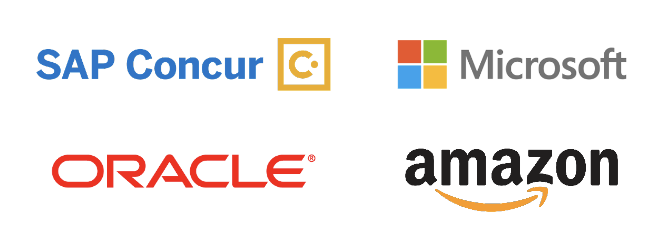(This is the second of a two-part series about the effect of AI and automation on fundamental skills. Part 1 can be found here.)
In an age where the kinds of repetitive, manual, compliance-driven work is increasingly automated by AI, firms have had to rethink their approach to recruitment and training to ensure their new hires can still learn the foundational skills they’ll need to perform higher value work.
Traditionally someone new to a firm would have a short onboarding period followed by years and years of on-the-job training alongside a more experienced professional. Over time, repetition plus experience would, on an ideal level, eventually produce a skilled professional who can then go on to perform higher value advisory work. While there were many differences of opinion among sources, all agreed that this old model no longer works for today’s era. With AI rapidly taking over the repetitive compliance-driven work new hires used to do, everyone we talked to agreed that firms need new approaches.
“[Foundational technical skills are] still important, and so we still have to train on it, but I think it’ll be less about on the job training. Historically, when you came up in a public accounting firm, it was a lot of on the job learning. You learn by doing. But if the technology is eliminating the doing part, then the learning has to change too,” said Hrishikesh Pippadipally, chief information officer at top 100 firm Wiss and Coo.
While it might be easy to lay the blame for this entirely on AI, Avani Desai, CEO of top 50 firm Schellman, felt that was too simple. In her view it is not so much the technology that is the issue but that training and education have not kept up with the technology. If people are not developing foundational skills because of automation, and if those skills remain important for professionals, it is incumbent on the firm to bring new hires up to speed, which she understands may take some time.
“I don’t think tech is actually the problem. I think it is the lack of structured training. When you go to a big place like an accounting firm, you get about one week of onboarding, maybe two weeks. I think we’re gonna have to do 12 weeks of onboarding, 18 weeks of onboarding, to actually train on those lower level skills.”
She was describing something very close to Schellman’s own model, with Desai saying new hires are flown to its office in Columbus, Ohio (opened in 2022) for 18 weeks of classroom style training, paired with 52 weeks of on the job training with a mentor. She conceded that it was a big investment, and an expensive one as “the first 18 weeks are not chargeable,” which does somewhat limit scalability.
“You can teach lower level control testing. You can teach reconciliation, if you have to. But again, 12 to 18 weeks, it’s a big investment, and so our classes are small. We have fewer than 25 people. If you go to firms that have hundreds of people on board, it becomes difficult,” she said.
But beyond the raw skills, the training also emphasizes critical thinking and judgment. When AI handles most of the basic tasks, the human needs to be able to vet the tools, evaluate the outputs, and be able to understand the wider context behind the data. This means training also includes things like communication and asking the right questions, curiosity for finding out the whys behind the whats, and observation for finding things that don’t quite fit.
“We really need structured, tech enabled training paths that teach both how to do it and why to do it. That’s more of a people process, less of a tech. And tech isn’t going to solve it. Giving someone five different pieces of tech and saying, ‘Go out and do it’, they could say, ‘Okay, I pressed these buttons.’ But again, you have to go deeper. Why am I pressing these buttons? And what is happening, and what’s the analysis that I need to do? So it’s both how and why,” she said.
This is part of a wider trend towards emphasizing the non-technical skills for new hires, with pretty much everyone mentioning the need especially for critical thinking and skepticism. Yolanda Seals-Coffield, PwC U.S.’s chief people and inclusion officer, mentioned it when discussing things like intensifying mentorship and apprenticeship on the job combined with practical simulations and digital training. The goal is to impart not just the foundational skills but the critical thinking to apply them to higher value work, which can involve a blend of hands on work, team coaching, AI enabled tools and close mentorship.
“You are spending time with the people that you work with, who are making sure you understand the ‘why.’ You’re not just [using] the output of what AI is giving you… We need to make sure that people understand why it is happening,” she said.
While this happens naturally throughout the workday, she added that “we will have to be even more intentional than it was before.”
Stephanie Ringrose, a partner with California-based Navolio and Tallman, similarly stressed the importance of critical thinking skills in today’s era, gearing the firm’s training to go beyond just technical abilities.
“We’re going to build on that, to give you technology as a layer to help you now understand and evaluate. We’re going to focus your training more on ‘does this make sense? What is the judgment? What is the critical thinking behind it?'” she said.
Ringrose added that, at her own firm, while they have a lot of AI-enabled tools, there’s still a lot of work that must be done by a human and so having those core skills remains vital. While the AI handles a lot of returns, humans are still trained on how to fill them in themselves so that they can both do the work AI perform as well as understand the AI’s outputs.
Pippadipally, from Wiss, said learning involves working side-by-side with a team, but in addition to that the firm also emphasizes self-directed learning through digital resources. Taken together, he said, professionals can both learn proactively but also have others to support them.
“And so having learning that’s on the job and side by side with a team, but also having learning that’s recorded that you can reference back to… even if we’re not together.”
Joy Taylor, managing director of consulting for Texas-based advisory firm alliant, said the learning process needs to happen well before someone is hired at a firm in the first place. She said that, over time, college education might focus more on giving students practical experience to be ready on their first day. In contrast, she said, recent graduates often find that there’s a vast gulf between what they learned in school and what they’re expected to know at work. While every educator aims to narrow this gap, Taylor felt it will be especially important as AI takes on more mundane tasks. She also anticipated that internship programs may also get more rigorous.
“I envision in the future that professional services companies, instead of hiring right out of college and having summer intern programs, making those summer intern programs even more robust and possibly have a stronger relationship with universities building out programs such that students in school are actually getting the experience that we used to get after we got the job. I think there’s going to be some advanced relationships in the pipeline, development starting closer in the college in a freshman, sophomore, junior, senior experience, versus waiting for a six week summer intern just to gain a little bit of experience,” she said.
But this brings us to the original problem: the pipeline. Fewer students are pursuing the field, which raises the question of how many people would actually be in this revamped system. This is partially addressed by embracing alternative staffing models, fractional roles and other ideas that try to go past the traditional firm model. But she also said students also need to be made more aware of the cultural changes in the profession, emphasizing the strategy-forward nature of many firms today.
“I really lean in very much on even career rebranding. I think accounting is facing a crisis right now because of the challenges of becoming an accountant. Maybe we need to rebrand it, emphasizing the strategic. Let’s strategy do the heavy lifting, instead of it feeling like it’s a bookkeeping service, because that’s not what people [want to do] anymore. What they’re using those professional services for is the strategic tax and accounting and programs that can be set up to benefit individual users and businesses,” she said.













